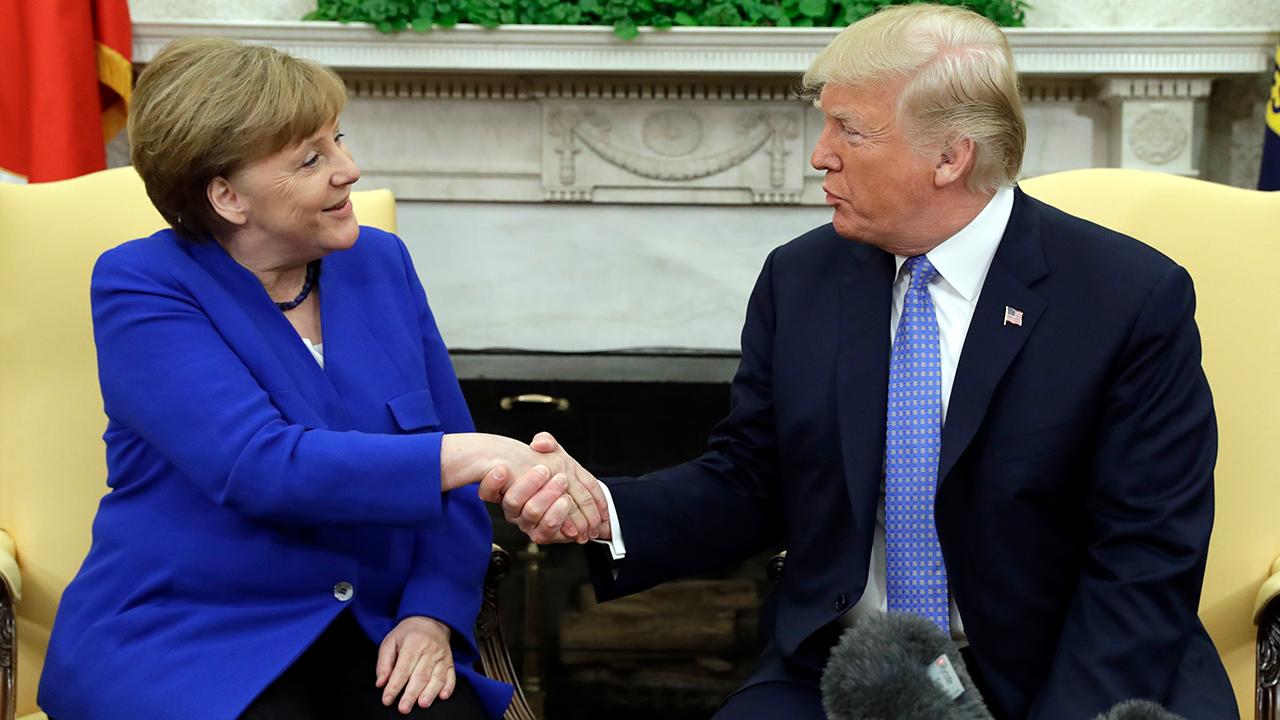Trump jabs Merkel on defense spending, trade as key tariff decision looms
President Donald Trump met with German Chancellor Angela Merkel in Washington on Friday, where he once again called on European countries to pay “their fair share” in defense costs, as Germany falls short of the 2% of GDP target.
The president said he was looking forward to “ensuring that all [NATO] member states honor their commitment to spend 2%, and hopefully much more, of GDP [on defense].”
As part of the NATO alliance, member nations are expected to spend at least 2% of their respective GDPs on defense.
Fair burden sharing among members of the transatlantic military alliance has been a point of contention for President Trump. Only three countries aside from the U.S. – Estonia, Greece and the U.K. – are currently meeting the 2% threshold. Poland’s spending, however, was close at 1.99% of GDP.
Merkel responded by saying Germany, which spent 1.24% of its GDP on defense last year, intended to remain a committed and reliable partner to other NATO member nations.
“We haven’t yet met the target where we should be, but we are getting close,” the German chancellor said, citing a plan to steadily increase that percentage over the coming years. In 2019, she said Germany would spend 1.3% on defense.
The meeting also comes as a deadline looms for the U.S. to extend a waiver exempting European steel and aluminum exports from new tariffs, and trade took center stage during Friday’s press conference.
Trump said he wanted a fair and reciprocal trade relationship with both the European Union and Germany, citing the United States’ trade deficit with the latter. In 2017, that deficit was more than $64 billion.
Trump is expected to decide by next Tuesday whether the U.S. government will continue to accept European imports of steel and aluminum without the respective 25% and 10% levies he placed on the commodities last month. The U.S. said it imposed the tariffs to safeguard national security.
In preparation for the decision, the European trading bloc has drafted a list of countermeasures it is prepared to impose if the U.S. does not permanently exclude it from the tariffs. The list includes $3.4 billion worth of goods, including jeans and motorcycles.
A senior government official expects the EU will be hit with the tariffs on May 1 after the European commission reportedly rejected terms put forward by Commerce Secretary Wilbur Ross, Reuters reported.
On Friday, when asked about the progress of negotiations, Merkel said “the decision lies with the president.”
French President Emmanuel Macron met with Trump earlier this week, when the pair discussed the Iran nuclear deal. Merkel and Macron want Trump to remain in the accord as a May 12 deadline approaches for the U.S. to decide whether to keep suspending sanctions that were lifted as part of the deal in 2015.




















